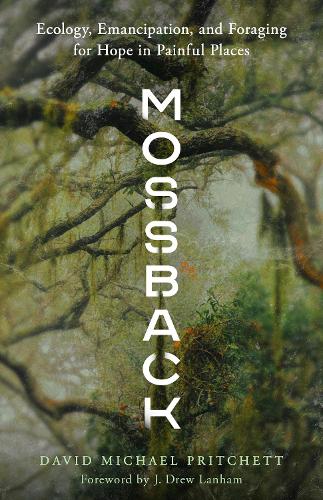
Mossback: Ecology, Emancipation, and Foraging for Hope in Painful Places
(Paperback)
Publishing Details
Mossback: Ecology, Emancipation, and Foraging for Hope in Painful Places
By (Author) David Michael Pritchett
Foreword by J. Drew Lanham
Trinity University Press,U.S.
Trinity University Press,U.S.
3rd August 2023
United States
Classifications
General
Non Fiction
304.2
Physical Properties
Paperback
256
Width 139mm, Height 215mm
Description
In Mossback, David Pritchett traverses geography, history, and genealogy to explore landscapes and mythologies at the intersection of environmental, indigenous, and social justice. This collection of a dozen essays searches terrainfrom the heart of a swamp to the modern grid lines remaking our watersheds, to the tracks of the animals who share this earth, to the inner landscapes of the soulto find glimpses of light in dark places and hope in painful legacies.
Pritchett recounts a trip to Dismal Swamp, where he takes inspiration from the many enslaved people who found refuge there. Another piece offers two ways of seeing the landscape: the watershed as an ecological unit, and the grid as a colonial construct. Still another weaves personal narrative with the story of the Trail of Tears to describe how settler colonialism became an apocalypse for indigenous nations and ecologies. Pritchett explores an early apocalyptic story from the book of Daniel and considers new ways of relating to the land and its inhabitants. He focuses on the relationship between technology and trees to argue that humans have largely discarded ecological interrelationship in favor of extractive ways of living, and he travels the Ventura River, reflecting on waterways as being endangered but still operating as places of refuge for people and wildlife.
The word mossback has been used to describe rural southerners who lived in swampy areas during colonial times and moved so slowly that moss grew on their clothing. It is also used to describe fish and turtles who show similar growth on their shells, Confederate deserters who refused to fight and, after the war, southerners who fought against the Ku Klux Klan. Pritchett reclaims the word to celebrate those who move deliberately through the natural world, protecting the land and the relations they depend on.
Reviews
"An eclectic collection of essays on racism, colonialism, and the environment...Detailing his travels to places 'human culture has not conquered,' including Death Valley, the Ozarks, and Mount Hood in Oregon, Pritchett uses 'myth, memory, history, and ecology' to outline 'ways of seeing the world' that privilege ecological and social justice...illuminates alternative ways of relating to the natural world."Publishers Weekly Mossback is a beautiful meander through place and time, and an interweaving of authentic personal stories with the stories of others, including Welsh bardic poets, contemporary and ancient theologians, mystics, biologists, Greek philosophers, and indigenous elders. Pritchett takes readers from the swamplands of Virginia to the mountains of Africa and back, returning again and again to the most important question of our timehow will we change the way we live on and with the earth and with each other Gretchen Legler, author of Woodsqueer: Crafting a Sustainable Rural Life
Author Bio
David Pritchettwrites about land, ecology, settler colonialism, and the recovery of story and myth. He works in emergency medicine, and he holds a diploma in mountain medicineand is certified in track and sign. He lives in Ventura, California.
